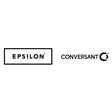This year has changed the consumer forever, redefining how, where and when they want to spend their hard-earned money.
What’s less clear is consumer sentiment and what it will look like during the peak shopping period of 2020 and beyond.
To shed light on the evolving habits of consumers in the UK, Epsilon-Conversant and Retail Week ran a nationally representative survey of 1,000 consumers, designed to give retail marketers the insight they need to create the most effective marketing strategies.
Below I’ve detailed a few of the key insights, but we’ll be analysing much more of the results on a RWRC Consumer 2021 panel – you can register to watch on demand for free here.

1. Consumers want to hear about discounts and Sales, not just products
While many are confident in their personal finances over the next year – 77% expect their level of discretionary spend to either stay the same or increase – they will also be cautious in their spending. Looking ahead to Christmas, 86% expect a low price to either influence them more or the same compared to Christmas 2019.
Interestingly, product-focused content, and messaging that looks ahead to upcoming stock, are only preferred by 7% and 6% of consumers respectively.
The takeaway is clear: you need a good reason – such as a Sale – to contact consumers specifically about your products right now. To do otherwise will risk alienating them.
2. Not all marketing is equal: measure both success and failure
It is no surprise that perceived value will drive customer loyalty, with 52% admitting bad value discourages them from being loyal to retailers, and 55% saying they are put off by poor-quality products.
What may be surprising to some retail marketers is that repetitive or irrelevant adverts that follow consumers around the internet are almost as discouraging – 47% of consumers in our survey cite this as a factor that stops them from being loyal to a retailer. Similarly, too frequent communications is blamed by 41% of consumers as a factor that stops them buying.
“It’s now more important than ever to properly measure the outcome of your marketing and make sure it contributes to overall profit”
It’s now more important than ever to properly measure the outcome of your marketing and make sure it contributes to overall profit. Gauging success via last-click attribution will never show the negative outcomes that some marketing activity can have on consumers, actively dissuading them from purchasing.
Measuring according to the incremental return each activity brings your business is key to unearthing the true value – positive or negative – that marketing activities create.
3. Understand the recipient of your marketing
Just 17% were prepared to receive retailer emails daily before it annoys them, while 44% were happy to receive emails weekly. A further 19% said that once a month was the right amount.
Perhaps the biggest takeaway is the need to truly understand whom it is you’re messaging. One consumer might have an affinity with your brand and the capacity to read daily emails from you, but that same cadence of messaging risks annoying 83%.
4. Relevance in loyalty is key to cut-through
Many retailers – and Marks & Spencer
On average, the number of retailer loyalty programmes that our consumers reported being a member of was 3.4. Yet the average number they participate in each month was just 2.8.
To drive loyalty, it is essential you use what you already know about your consumers to inform your programme.
5. Consumers want their retail experiences personalised
There is a clear understanding among two-thirds of consumers that in order to have a more relevant and beneficial experience with a retailer, they need to provide information about themselves. We found that 68% said they are happy to provide personal information in order to receive a more tailored shopping experience.
Digital personalised experiences can be both on-site and off-site – from email messaging and advertising, through to up-sells and product recommendations at checkout. Retailers that see the most success from personalisation lessen consumer friction by increasing relevancy for each individual consumer – that’s win-win for both consumers and retailers, especially during recessionary times.
As mentioned, I’m discussing the above takeaways and a lot more during a RWRC Consumer 2021 panel which retailers can watch on demand. MyWardrobeHQ chief executive Jane Shepherdson, Studio Retail Group chief executive Paul Kendrick, and Pour Moi chief executive Michael Thomson join me on the panel and you can register for the event for free here.

Ben Foulkes is senior business development director at Epsilon-Conversant




























